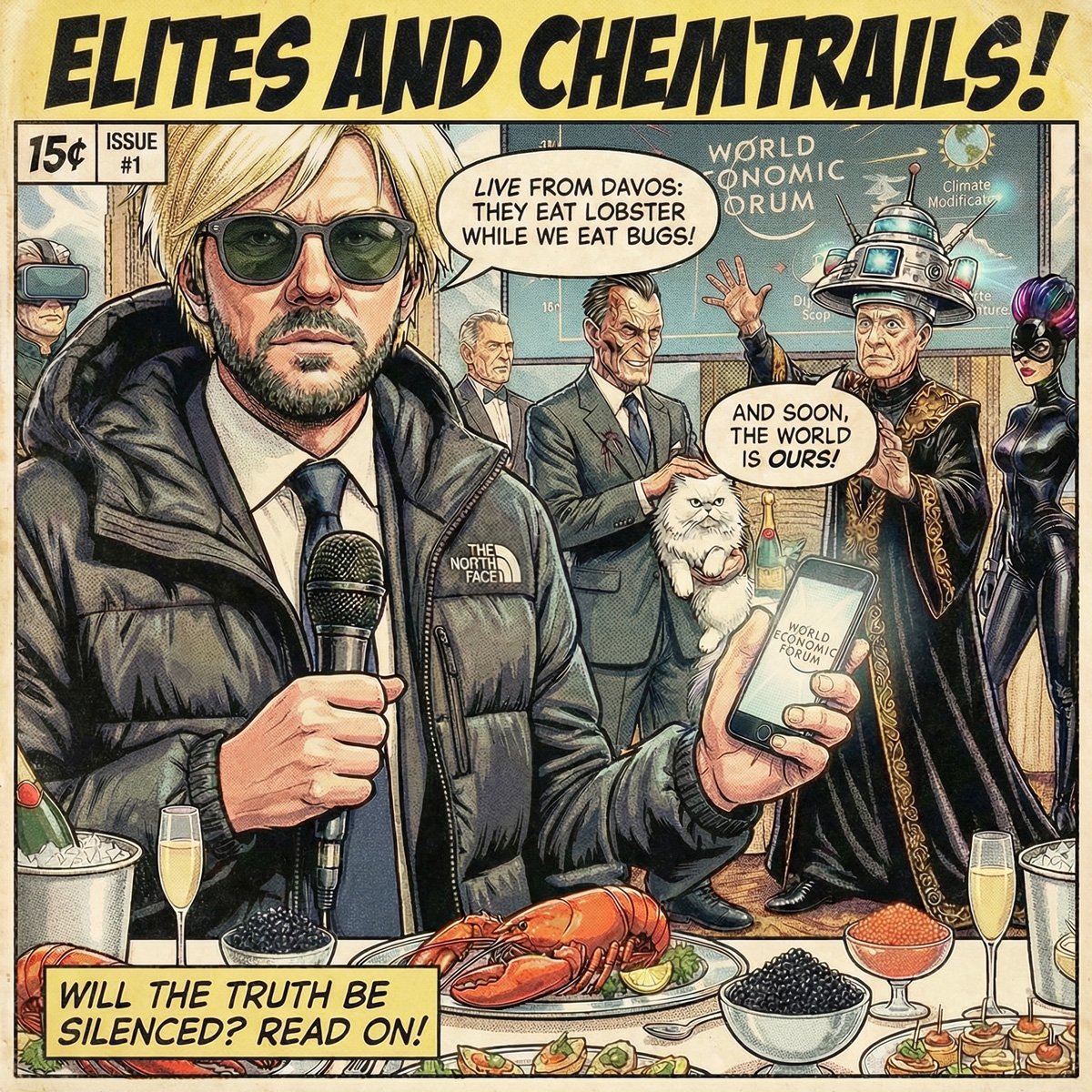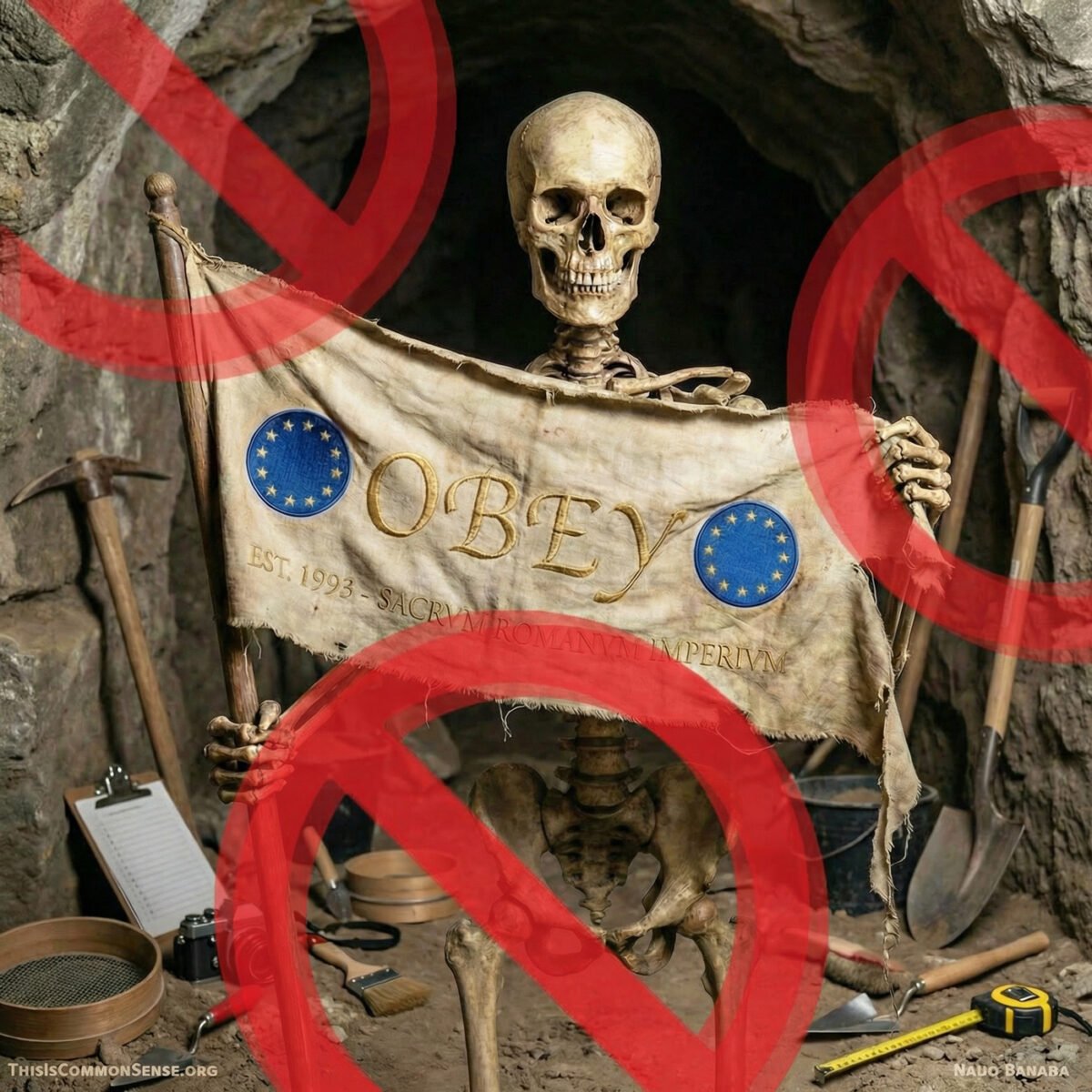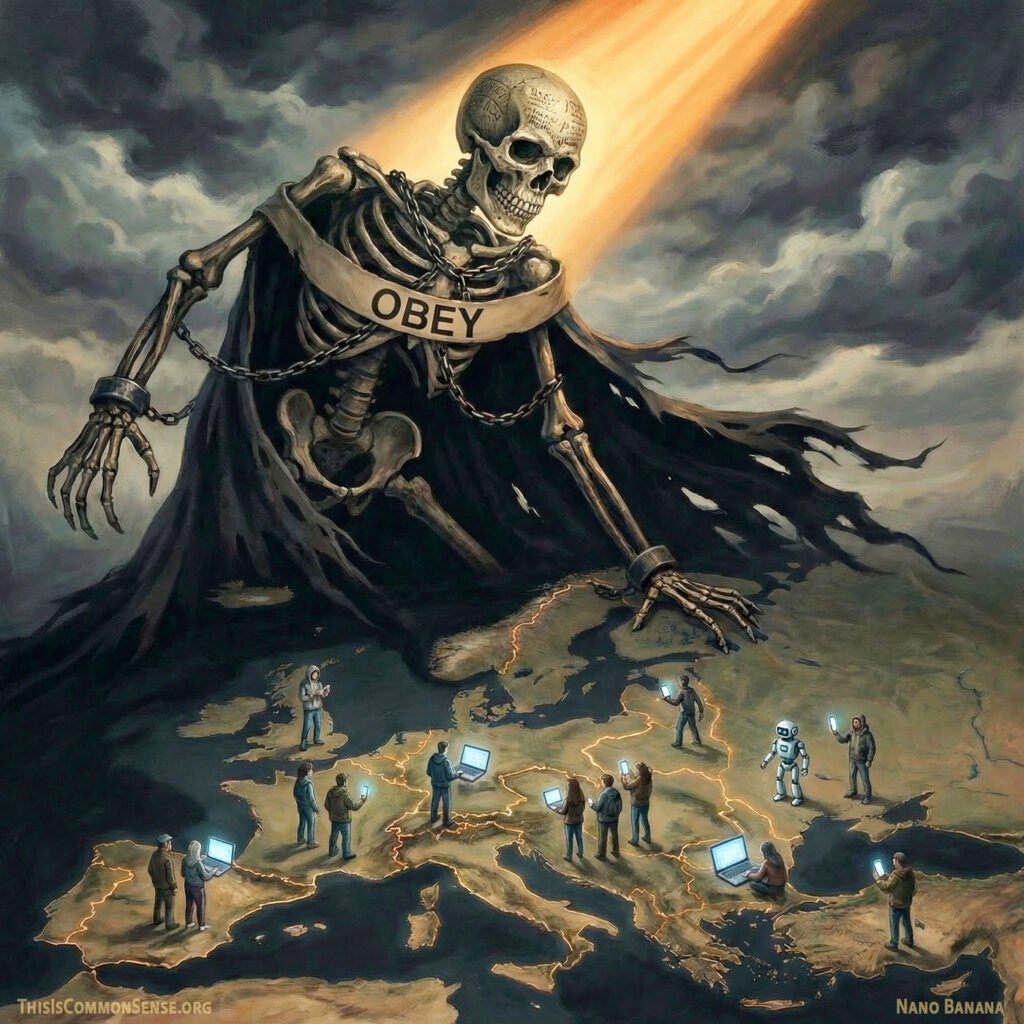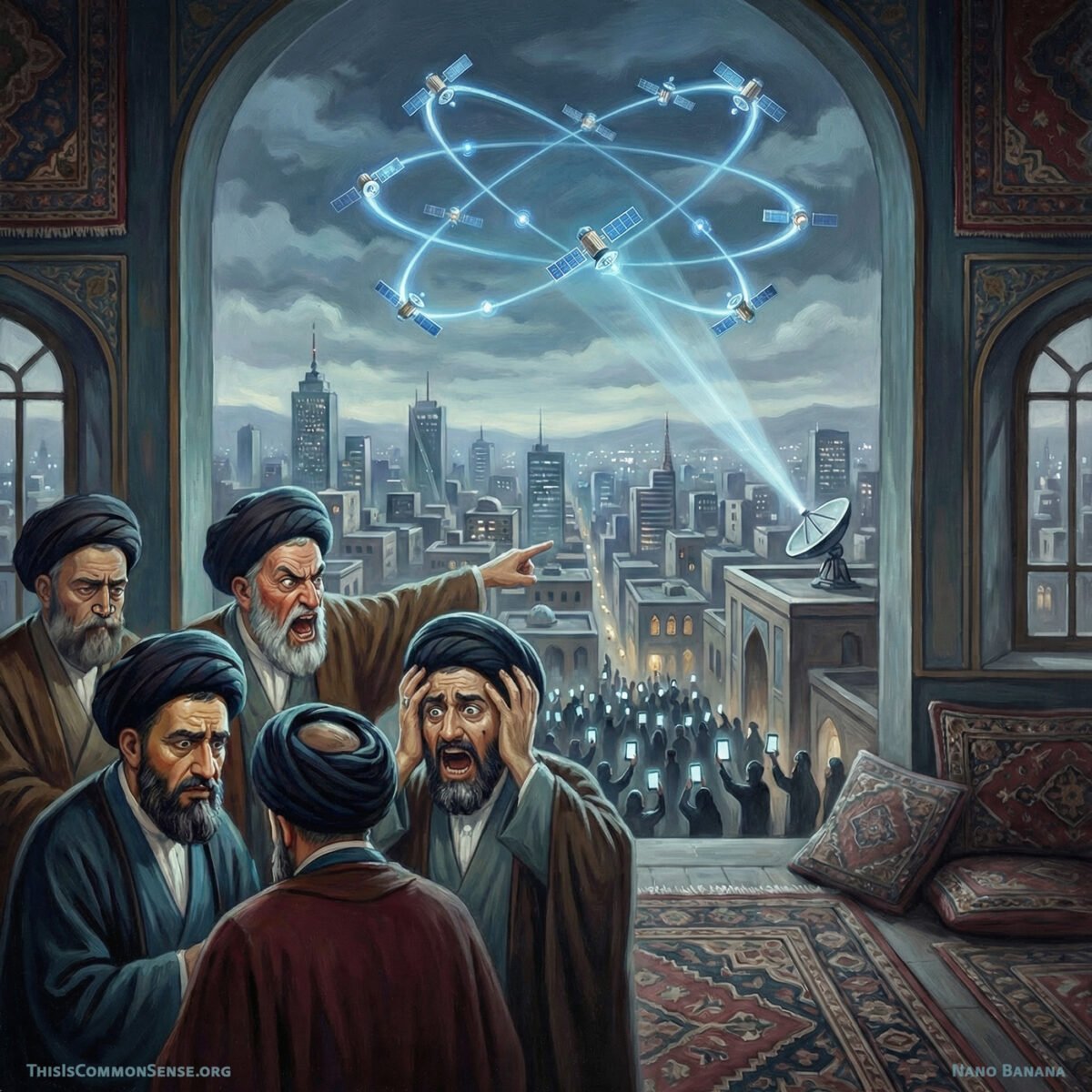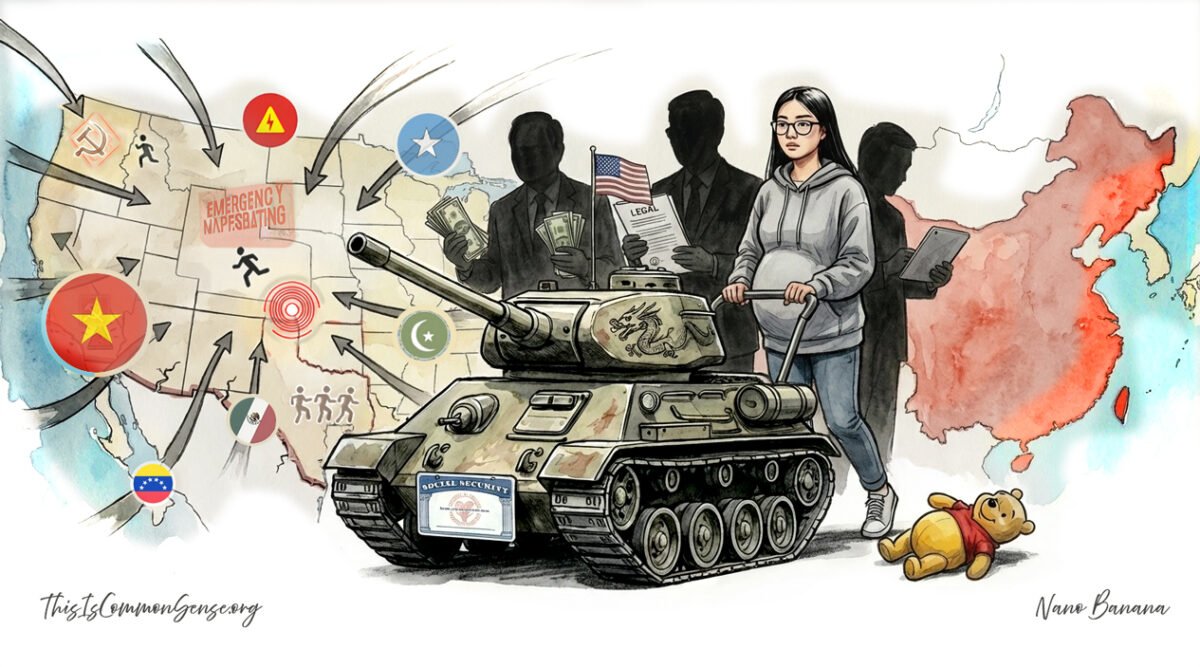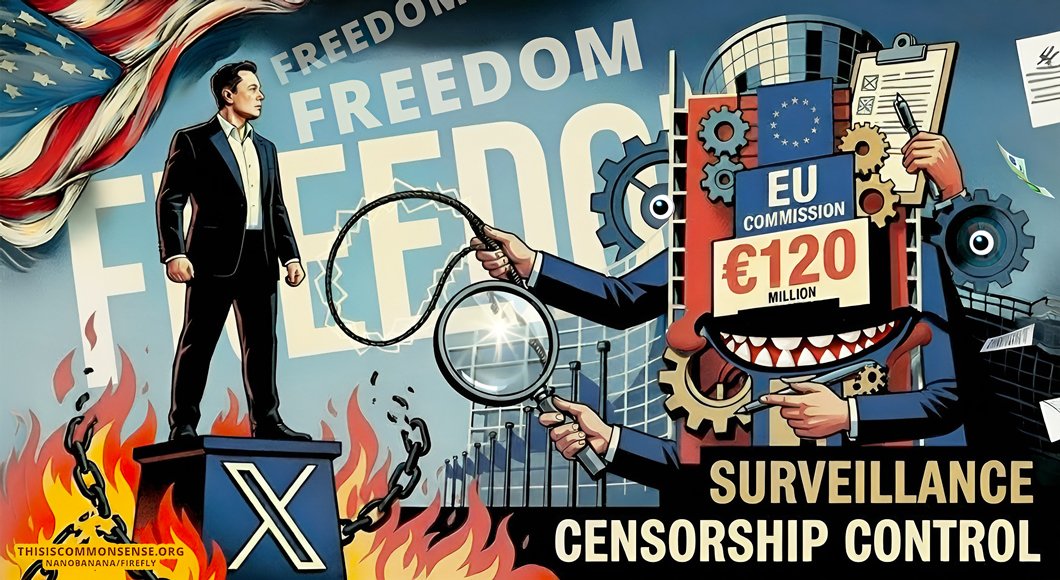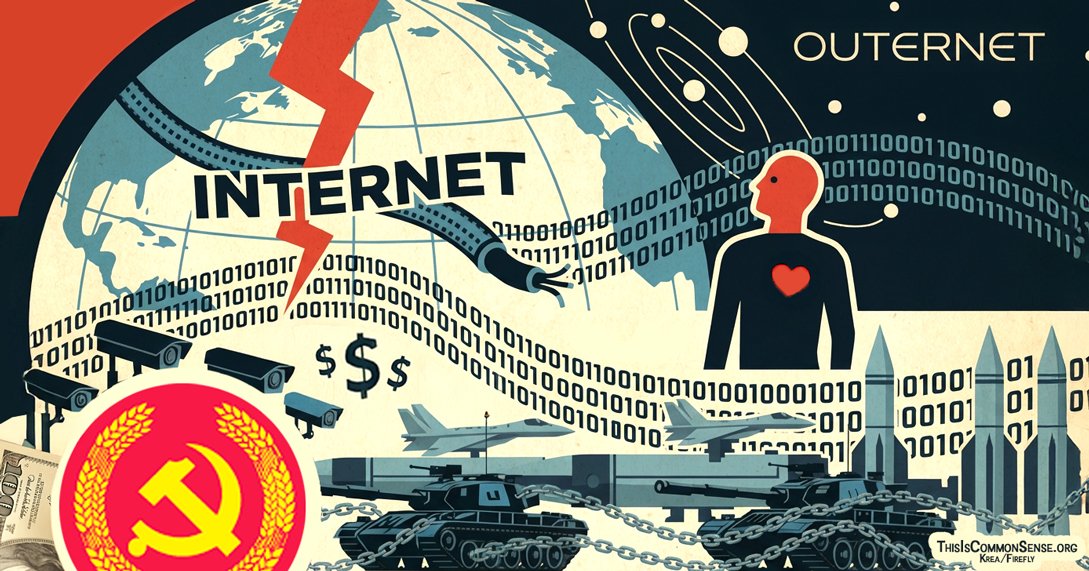One of P.J. O’Rourke’s better books is Age and Guile Beat Youth, Innocence, and a Bad Haircut. My purpose in mentioning it is not to praise it but merely to adapt it for the James O’Keefe story, where middle age and guile and a bad haircut beat Creepiness and Guilt.
“Disguised and undercover,” explains the O’Keefe Media Group article, “James O’Keefe embeds inside the World Economic Forum, slipping past armed security and exclusive guest lists to capture what the global climate elite say when they think no one is listening.”
The bad haircut? A goofy blond wig that Mr. O’Keefe (1984– ) donned to fool the European bigwigs (er, elites). He looked like Andy Warhol as a special guest on “Sprockets.”
What did this subterfuge accomplish? “Posing as an employee of a fictional climate engineering firm, O’Keefe and the OMG team are welcomed into late-night events, luxury hotels, and mountaintop forums where climate financiers openly discuss carbon taxes, geoengineering, and weather modification, commonly referred to as ‘chemtrails.’”
Yes, chemtrails!
I’ve been programmed to chuckle right now, hence that exclamation point.
Speaking of programmed — Grok gave me plenty of excuses to keep on chuckling. It also gave me the wrong URL for the O’Keefe Media Group (O’Keefe’s successor to Project Veritas) and words of wisdom like this: “If O’Keefe’s video shows attendees discussing it casually, it might be speculative chit-chat rather than official policy.”
One thing Grok couldn’t understand is the “optics.” O’Keefe is not wrong to note that some of the WEFers cheerleading for BlackRock do indeed “look like Bond villains.” A conference where people enthuse about seeding the upper atmosphere with chemicals to cool off the planet? That should be the premise of the next James Bond flick.
Has weather modification actually been going on … for decades?
I don’t know. But if these folks are talking about climate geo-engineering, what wouldn’t they do?
This is Common Sense. I’m Paul Jacob.
Illustration created with Nano Banana
See all recent commentary
(simplified and organized)
See recent popular posts
